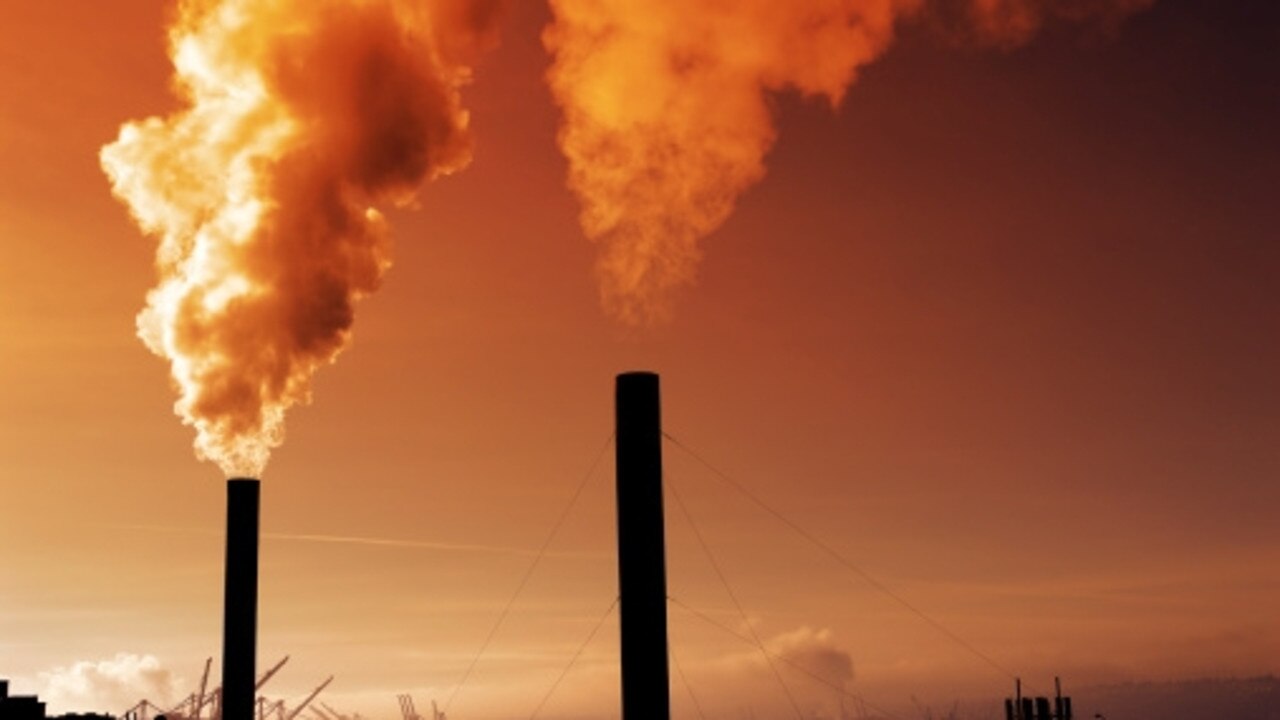Clive Palmer’s repeal capers ‘put savings at risk’
CLIVE Palmer risks jeopardising the savings to consumers he is claiming to safeguard.
CLIVE Palmer risks jeopardising the savings to consumers he is claiming to safeguard unless his Palmer United Party senators quickly pass the carbon tax repeal, business leaders warned last night.
Business piled pressure on Mr Palmer to immediately scrap the carbon tax after the PUP embarrassed the government and caused Senate chaos by rejecting the repeal bills over a dispute about amendments that guaranteed carbon price reductions were passed on in full.
The government will reintroduce the carbon tax repeal bills into the House of Representatives for a third time since winning the election 10 months ago on a pledge to axe the carbon tax.
The government will back the PUP amendments in the hope of quickly returning the legislation to the Senate for approval by the end of next week. Australian Industry Group chief executive Innes Willox said the cost and complexity of unwinding the tax rose with each day that passed.
Business Council of Australia president Catherine Livingstone said parliament must not delay repealing the carbon tax.
Ms Livingstone said failure by the parliament to repeal the carbon tax by next week would create significant uncertainty for businesses, particularly electricity retailers, with flow-on consequences for consumers. Electricity companies will be holding about $200 million in carbon tax by the end of next week, with the industry paying $11m a day.
The industry warns that a protracted repeal process makes the task of returning the savings to consumers more complex.
Mr Willox said yesterday’s Senate manoeuvres just delayed the inevitable, with a majority of the Senate already committed to carbon tax repeal.
In a dramatic move that thrust him back to the centre of the political debate and derailed the Prime Minister’s plans to have the repeal passed yesterday, Mr Palmer said his senators would not support yesterday’s scheduled carbon tax repeal vote after changes to a PUP amendment were not circulated to the Senate.
Mr Palmer blamed the government for not circulating the amendment. He said the government’s amendment amounted to a “whitewash’’ and feared he had been “double-crossed’’.
But the government said it had received the amendment at 9.15am and agreed to it by 9.30am. It was not circulated on the advice of the clerk of the Senate because it was unconstitutional. The issue was whether a 250 per cent charge to companies for not passing on carbon tax savings was a tax or a penalty. Taxes cannot originate in the upper house.
A draft that was constitutional was circulated but PUP Senate leader Glenn Lazarus failed to move the amendment, arguing it was “circulated in a form we do not approve’’.
Mr Palmer withdrew his support for the repeal legislation despite the fact his senators had voted for a gag to bring on the vote. The repeal was defeated 37-35 and will now have to be debated in the House of Representatives before again being returned to the Senate.
Mr Palmer’s amendment appears to dramatically widen the scope of who would be covered under laws to guarantee the carbon tax repeal savings, beyond electricity and gas producers.
“We read this morning that Virgin and Qantas have said they are not going to pass those savings on to consumers — they are just going to absorb them as extra profits. We don’t think that is a reasonable thing,” Mr Palmer said.
Mr Willox warned the government to carefully scrutinise the new amendments.
“Amendments that drag in the broader business community would be unworkable and cause regulatory mayhem, particularly as so many businesses have absorbed the carbon price and not passed it on to their customers,” Mr Willox said.
Liberal Democrat senator David Leyonhjelm said the amendment was “very prescriptive” and “is really going beyond what is reasonable”. He said that if it increased red tape for business he might not support it.
If the carbon tax repeal is not passed by the end of next week the electricity industry warned that returning carbon tax repeal savings to consumers would become more complex and uncertain.
About $400m worth of electricity contracts will be traded without the carbon price between July 1 and July 18. But if it is not passed by July 18 — when parliament is due to rise for a five-week winter break — the carbon price of $25.40 a tonne will be reinstated. This will complicate transactions between generators and retailers and make savings for consumers more difficult to calculate.
Ms Livingstone said electricity prices had doubled in the past decade, with the carbon tax accounting for up to 20 per cent of the electricity bill of a large business and 6 per cent for a typical household.
Ms Livingstone released analysis done for the Business Council by Synergies Economic Consulting and Roam Consulting showing the carbon tax and other green energy policies now accounted for 40 per cent of the electricity bill of a large business that did not receive government assistance. She said delaying repeal beyond next week risked not achieving royal assent by September 1, when the next round of free carbon tax permits was due to be issued.


